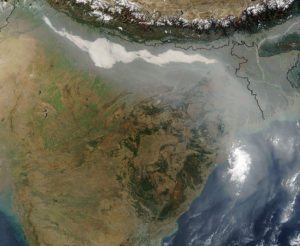 There is a plan in place to spread out tiny particles into our stratosphere. This event could end up helping with our global warming issues. However, there could be massive trade-offs because of it that would need to be considered. The idea to shade Earth in a massive veil of particles could be good or very bad.
There is a plan in place to spread out tiny particles into our stratosphere. This event could end up helping with our global warming issues. However, there could be massive trade-offs because of it that would need to be considered. The idea to shade Earth in a massive veil of particles could be good or very bad.
Decline In Crops
While the idea of helping global warming is a clear advantage of this idea, it could end up yielding much less from our crops. The possibility of this was discovered from past events such as giant volcanic eruptions shooting lots of dust and sulfur particles into the air. Some of the events shot enough particles into the atmosphere that it shaded the Earth for a significant amount of time. This geoengineering idea could end up having the same ill effects if the shading of Earth goes on for too long.
Shooting Aerosols Into Our Stratosphere
The idea of shooting tiny aerosols into our stratosphere is an approach referred to by the name solar radiation management. The idea behind it is to shade some of the incoming sunlight as a way to cool our Earth down and help to mitigate the climate change. Many scientist believe this will be beneficial to our plants and help to improve the yields from our crops.
In both 1982 and 1991, scientists had noticed the particles released from the huge volcanic eruptions had given out enough sulfates to decrease the amount of solar radiation coming into our atmosphere. In turn, it greatly affected our harvests of rice, soy and maize. There are many other scientists who feel that the unknown, long-term effects of global radiation management is too risky for the benefit of short-term advantages.
Much research has been done to show what the real-world ramifications would be if this plan is put into motion. However, solar radiation managing has not been fully taken off the table. More research needs to be done in order to safely assume what the results would be in the following years.
There are many risks involved with global dimming. However, many scientists feel there is a huge trade-off that comes with the risk that could end up being very beneficial for crop farmers. We are also warned that the results from natural occurrences such as volcanic eruptions only give us a small picture of what releasing small aerosols into the stratosphere will change.




